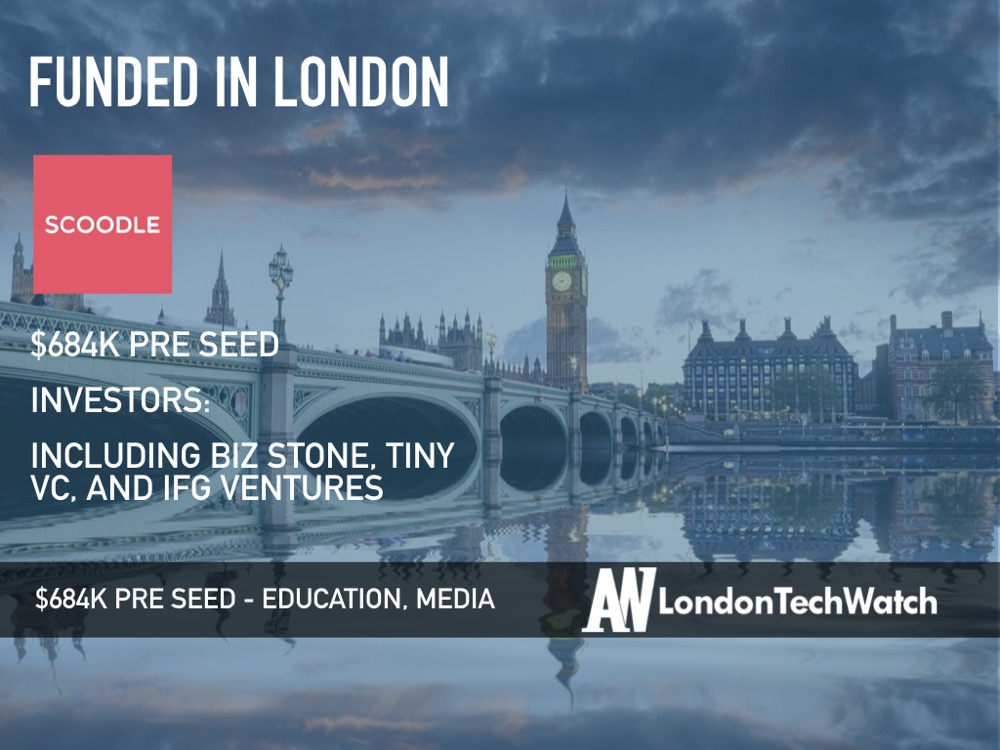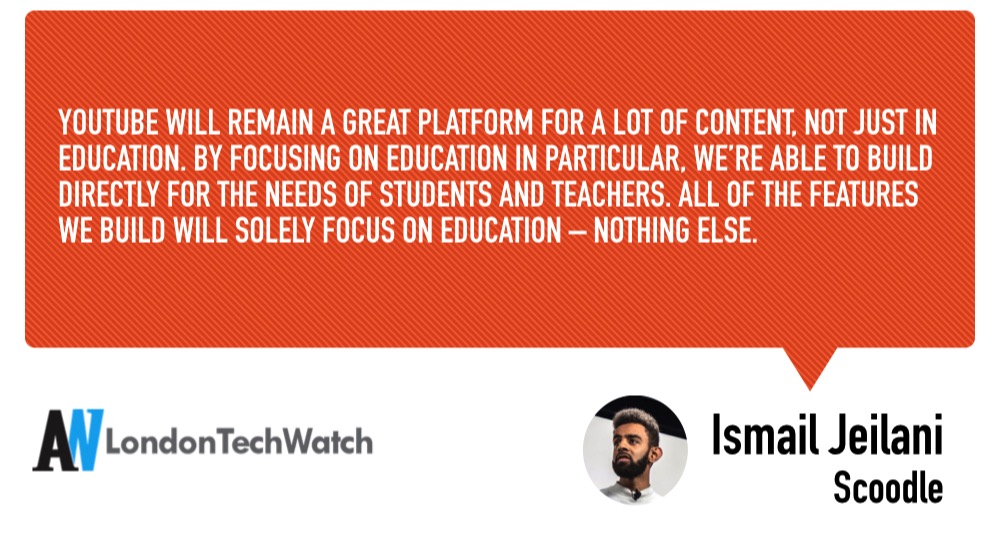Tutors are academic lifeboats, but they often come with a steep price tag and aren’t accessible to most people. Scoodle, the online, education platform, connects students with the most qualified tutors based on students’ questions. Scoodle doesn’t take a commission from tutoring sessions and is available as a subscription service. Students can also download the Scoodle app, select a subject and schedule time with a tutor, who is given a set of marketing tools to build their followings.
London TechWatch sat down Cofounder Ismail Jeilani to learn more about how Scoodle is improving the fragmented world of online tutoring.
Who were your investors and how much did you raise?
We raised $760K from Biz Stone, Tiny VC, IFG Ventures and a host of angels from Google, University Of Oxford and Miniclip.
Tell us about the product or service that Scoodle offers.
Scoodle is helping tutors become influencers. After creating a profile, tutors can showcase their talents by sharing answers – a little like Quora. If students like what they see, they can book lessons.
What inspired the start of Scoodle?
The story of Scoodle began when I couldn’t afford to go to university. I didn’t want to take a student loan. Instead, I taught. Students would refer other students to join my class. Within 2 years, I covered the cost of my entire degree.
What market is Scoodle targeting and how big is it?
In the UK market, the tutoring space has companies like tutorful, tutorhunt and myTutor. The space remains very fragmented. Our key differentiator is driven by our focus on tutor branding driven by content. Unique content gives us a different user acquisition channel along with long term defensibility. This tutor-focussed approach also means we’re the first to have a 0% commission model. This keeps tutors on our platform longer than anywhere else.
What’s your business model?
We have a subscription service that gives our users premium access. For tutors, this gives them a boost in listings which means more enquiries and bookings (up to 30x more). As we scale our content platform, tutors can also earn royalties as they continue to contribute. For students and parents, this means they can ask unlimited questions with a guarantee of reliable answers from expert tutors.
How will you compete with larger platforms like YouTube?
YouTube will remain a great platform for a lot of content, not just in education. By focusing on education, in particular, we’re able to build directly for the needs of students and teachers. All of the features we build will solely focus on education – nothing else.
What was the funding process like?
Crazy. Very high highs, and very low lows.
What are the biggest challenges that you faced while raising capital?
The no’s can hurt. When you work at another company, there’s usually a separation between you and your workplace. In your startup, you are your company. When a potential investor says no, you feel that not just as a rejection of your company, but a rejection of you. As a result, the no’s can be felt quite personally.
Equally, though, it’s that personal connection with your own company that makes you go to lengths that you never thought possible.
When you work at another company, there’s usually a separation between you and your workplace. In your startup, you are your company. When a potential investor says no, you feel that not just as a rejection of your company, but a rejection of you.
What factors about your business led your investors to write the check?
At this level, it’s really important to believe in the team. Ideas can pivot, tweak or change. What matters is the people behind the idea can steer it in the right direction.
What are the milestones you plan to achieve in the next six months?
We’re testing different revenue channels, but most importantly we want to grow the number of students and tutors we can reach around the world.
What advice can you offer companies in London that do not have a fresh injection of capital in the bank?
You’ll make mistakes. The most important thing is to make mistakes quickly.
Where do you see the company going now over the near term?
Hundreds of thousands of students and teachers in our ecosystem, along with the growth of our first few influencer teachers.
What is your favorite restaurant in London?
Diyabikir Kitchen in North London.




